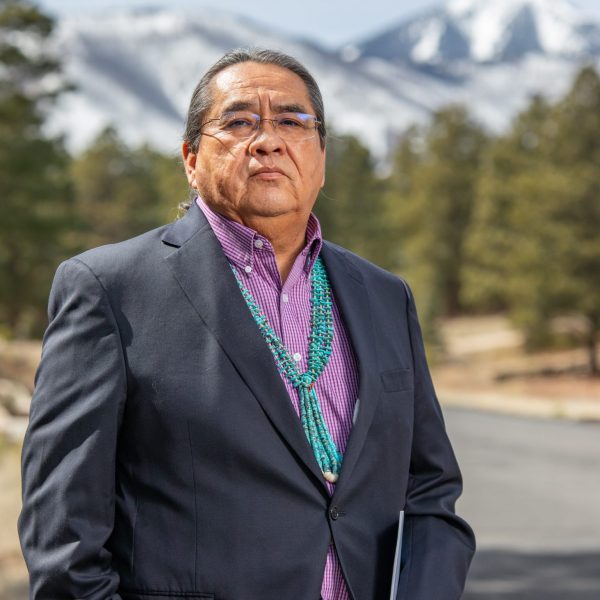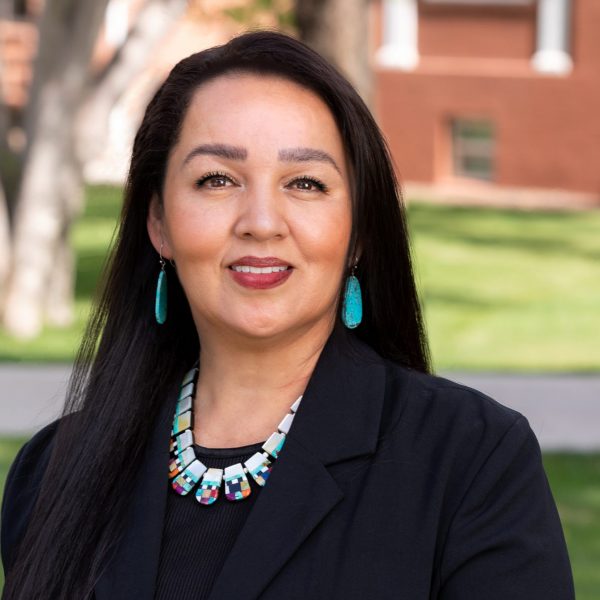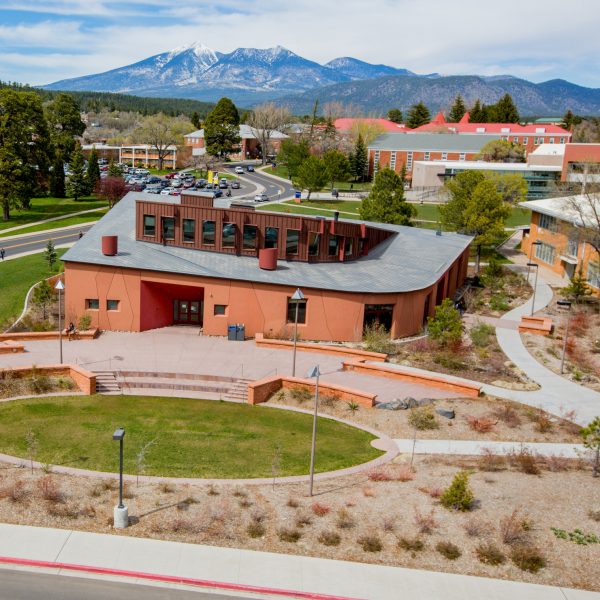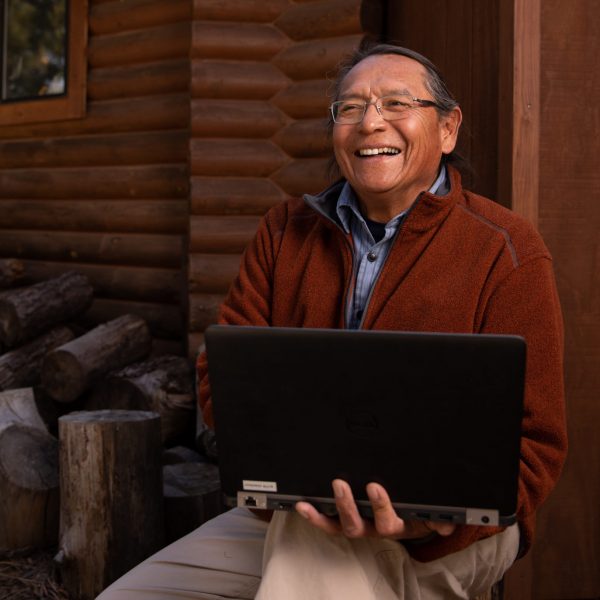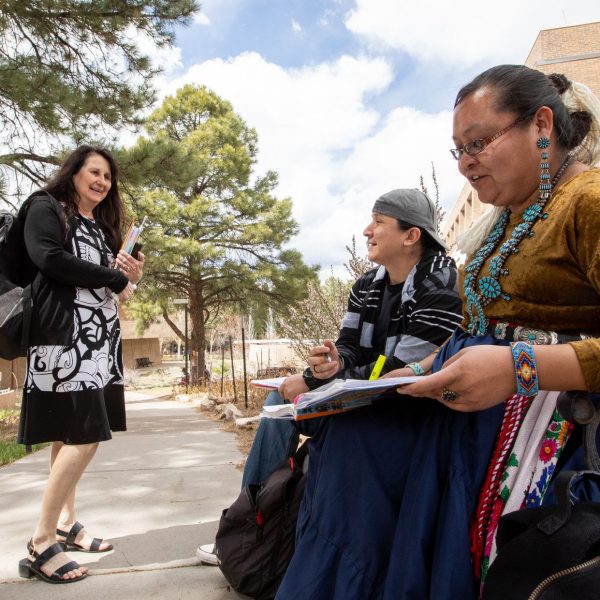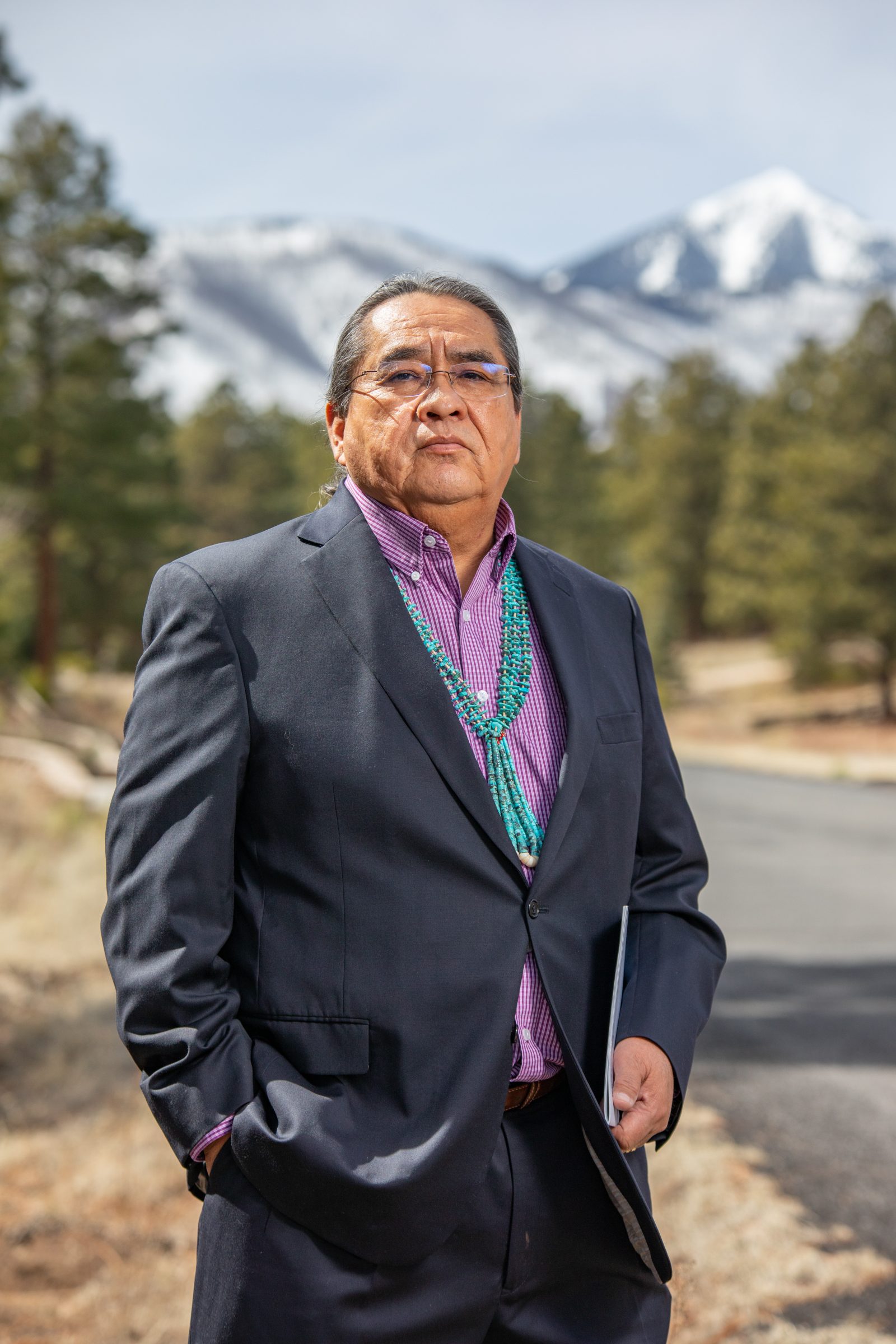
NAU’s Manley Begay Jr. empowers Indigenous leaders around the world.
In his nearly 30-year career, Manley Begay Jr., EdD, has worked with more than 500 different Indigenous nations spanning the globe, getting to know diverse Native leaders and helping them build the strength to face the challenges of the modern era.
Begay, who is a citizen of the Navajo Nation, teaches Indigenous nation-building and Navajo history and philosophy at Northern Arizona University, where he also directs the Tribal Leadership Initiative in the Office of Native American Initiatives. It is his latest role in a career dedicated to strengthening Tribal leadership—work that has earned him invitations to teach and advise Indigenous groups around the world.
“Working with both prospective leaders and current leaders brings a certain amount of satisfaction in knowing that you’re helping in an almost immediate sense with the challenges that leaders face,” says Begay. “Seeing how our young people and current leaders are moving forward is really what the work is all about.”
Of his abundant career achievements, including being the first Navajo person to graduate from Harvard University with a doctoral degree, Begay ranks the longevity of his work at the top.
“To be doing this work for almost three decades is something I’m very proud of. It goes to show that higher education institutions are interested in Indigenous nation-building. There’s a recognition that Indigenous nations and leaders need support,” Begay says. “Too often, there seems to be a thinking that development work is much more applicable elsewhere in the world, rather than looking in your backyard. However, that development work can occur a couple hundred miles away, or right next door.”
Challenges of nation-building
Begay began his Indigenous nation-building work during his time as a graduate student research assistant at Harvard University, where he helped with the early stages of the Harvard Project on American Indian Economic Development. The project focuses on why some American Indian nations succeed economically while others do not, and inspired a shift in Begay’s doctoral research from secondary education administration to Tribal leadership development.
“Working with that research project just gained my interest and I realized that this is the field of work that I wanted to engage in, and so, since then, this is the work that I’ve been doing,” Begay says, noting the broad scope and challenges associated with the work of building nations. “There are Indigenous nations and leaders all over the world, and each of these nations are at different stages of development, so getting a handle on what stage of their development that’s occurring can be very difficult. You need to understand what that development is in order to be able to come up with an understanding of how to assist that particular nation.”
However, these challenges only strengthened Begay’s personal and professional mission to educate and assist other Indigenous leaders.
Being strong in terms of identity, relying on where you come from, the strengths of your home, your family and your teachings, provides the foundation to be able to take on those challenges that might be new and different. I think knowing who you are is so critical and important to understanding your place in the world.
For nearly two decades, he served as one of the co-directors of the Harvard Project, which identified specific factors critical to building strong Native nations, including political sovereignty, institution-building, culturally appropriate government, a strategic mindset, and effective leadership. These factors continue to influence Begay’s work at NAU, where he has helped to develop the Indigenous and Tribal Nation-building graduate certificate program as well as executive and youth leadership sessions through the Tribal Leadership Initiative.
Felipe Colon, a member of the Laguna Pueblo tribe in New Mexico and faculty member of the Institute of American Indian Arts in Santa Fe, is currently enrolled in the Indigenous and Tribal Nation-building certificate program in order to learn how to better prepare his own students for leadership positions.
“Dr. Begay has this really deep and broad experience around Native America, around other institutions, around other professionals, that really benefits his students,” Colon says. “As I’ve seen, he is able to connect with those folks who are the major thinkers and the major players to really envision a sustainable future for Indigenous-based projects and Indigenous scholars.”
Colon added that, as an Indigenous scholar himself, he’s seen how Begay’s research on Indigenous nations has proven influential not only at NAU, but across the boundaries of modern academia.
Indigenous identity and leadership
At Harvard, Begay depended on the strengths of his Navajo identity to get through school. These same principles inform his efforts to educate other Indigenous leaders about how to operate with external governments.
“Being strong in terms of identity, relying on where you come from, the strengths of your home, your family and your teachings, provides the foundation to be able to take on those challenges that might be new and different,” he says. “I think knowing who you are is so critical and important to understanding your place in the world.”
Begay sees his role at NAU as a combination of teaching and developing the Tribal Leadership Initiative. He’s working to sustain the initiative well into the future.
“The grand plan is really to develop a leadership center that would provide a variety of programs to help Indigenous leaders—both prospective and also current leaders—around fellowship, executive education, and developing curriculum that would mesh well with the Department of Applied Indigenous Studies,” says Begay. “We want to be a place where, if an Indigenous leader or an Indigenous nation needs help, they can come to Northern Arizona University and go to the Center for Indigenous Leadership and get answers and get help.”
Begay is searching for an endowment to sustain the Tribal Leadership Initiative at NAU. Reaching this goal represents a crucial step in solidifying Begay’s legacy of supporting Indigenous peoples not only in Arizona, but around the globe.
Read Begay’s Q&A to gain his insights on Indigenous nation-building careers.

